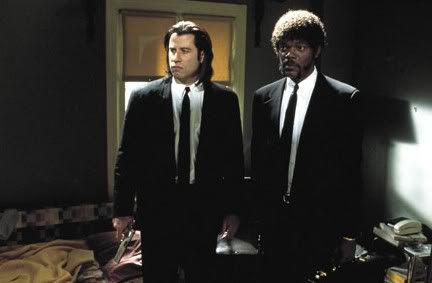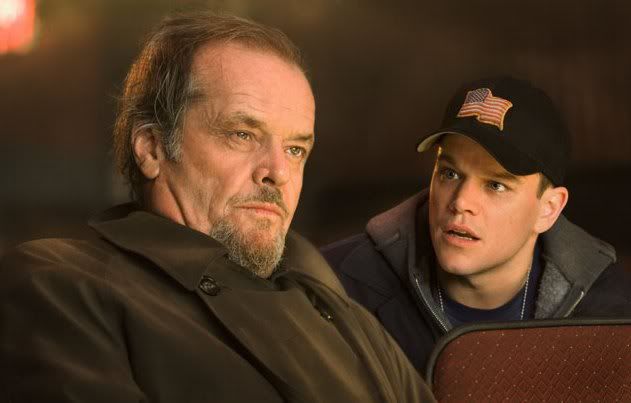 The immortal mirror scene.
The immortal mirror scene.My film review/analysis of what may be the best film ever made:
With its main target being to portray the extremely acute post-Vietnam War angst and disillusionment, director Martin Scorsese focused his lenses and vision to a lone cab driver cruising through the filthy streets of New York that almost alludes to a contemporary 'hell', and subtly articulates about the ambiguous nature of insanity. And the result is, well, not just his masterpiece, but one of the finest films American cinema has to offer. It stars Robert De Niro in a heavily complex (and one of the screen's greatest) performance as Travis Bickle, exhibiting both his mastery of subtle acting and his ever-escalating intensity.
But his Travis Bickle is never just a character. He is a representation. A social mirror of how depression and loneliness exist in a subjugated psychological fragment of society where existence is just for the sake of it, and the meaning of the word 'interaction' a fading afterthought. There are those who do not want to meet any new people save for some of his/her few acquaintances. There are those who do not know people much but is striving to meet some. And then there is Travis.
One of the film's timeless aspects is its disturbing, angry, but ultimately sad narration by Bickle himself. Here's a man who transforms his solitude into an anger-laden vigilantism against the so-called 'filth' of the streets. Here's a man who has nothing but his own breathing body and his own deteriorating psychological health. But at least, here is a man who stood up. But to look at Travis Bickle as a flawed hero is far from what "Taxi Driver" is all about. To look at him as a man with a goal and and a concrete initiative is far from the film's nightmarish view of what Travis Bickle is and what he's in for.
If we'll go into a direct assumption that him saving a young prostitute is a heroic deed, then why haven't they just made "Taxi Driver" into a dramatically redemptive little action movie? The answer is this: the whole 'saving the prostitute' mission he had is, like his existence, just for the sake of it. Looking at Travis's motivational pattern, all of his actions root out from him being rejected by the beautiful campaign worker Betsy (played by Cybill Shepherd).
With him having nowhere to go from there, he went on for a plan to assassinate presidential candidate Charles Palantine, not just to horribly capture the imagination of countless people regarding the fact of how terribly 'far-out' a man can be to do such a thing (John Hinckley Jr. and Mark David Chapman already captured ours in real life) and also to take hold of Betsy's attention. This is where ambiguity regarding his actions really starts to go haywire.
Some would say that his plan to kill Palantine is a condemning act to blame the said candidate for not being able to clean up the city's filth. But take note of their scene inside Travis' cab earlier in the film. Their conversation, although a bit distant in nature, is an honest exchange between two men craving for change. See how Travis' eyes went from being patronizingly phony into deeply-set ones as he stated how he wants someone to just flush all the city's scum down the toilet.
In all fairness, Travis do want some change, but relating this sentiment with his act to kill Palantine for not being able to do so (to do something with the city, that is) is foolish. Just like a common psychologically disturbed fellow resulting from extreme social isolation, Travis dreams of 'grandeur'. He wants to be 'that' man that has purposely killed the presidential candidate, and the people will remember him for it. The same applies to his final ditch effort to save the young prostitute Iris (Jodie Foster in a performance that earned her an early Oscar nomination) from his manipulative pimp (played by the great Harvey Keitel).
Because he failed in his previous plan, and also maybe because he has thought that killing a high-profile political figure may put him into the psychotic row of the history pages, Travis decided to enter the territories of folk heroism and masqueraded himself as an obscure social crusader, albeit an extreme one. Take note of the film's tagline: "On every street in every city, there's a nobody who dreams of being a somebody." Travis Bickle may have achieved cult status as an ideal cinematic anti-hero, but I view him more as nothing but a confused and heavily disillusioned fellow who wants to prove something within himself and to everyone, even if it takes a casualty or two to do it. But although I do not see him as a hero, I see him as a truly sympathetic figure, and a truly saddening one at that.
Scorsese (along with Paul Schrader's masterful screenplay), with his ethereal but deeply unsettling depiction of 70's New York City, enhanced by Bernard Hermann's misleadingly seductive yet menacing musical score, symbolically pushes Travis Bickle into a lonesome spotlight in the middle of a show, only to subsequently find out that audiences are filing out of the venue even before he had the chance to step into the stage. "Taxi Driver" is the manifestation of how he may have hypothetically felt at that moment, and the result is a film of unequaled greatness. Please do watch this film, and let the brilliance of what 'true' cinema is all about pervade within your soul.










